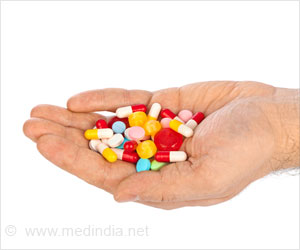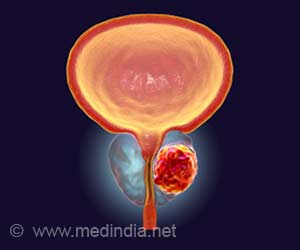Highlights:
- Men who consumed at least seven drinks per week during adolescence and early life had three times higher risk of being diagnosed with aggressive and clinically significant prostate cancer
- Over 1 million cases of Prostate cancer are diagnosed across the world annually. It is the second most common malignancy and the sixth leading cause of death due to cancer among men globally.
Early Life Alcohol Excess and Prostate Cancer – Focus of Current Study
- "The prostate is an organ that grows rapidly during puberty, so it's potentially more susceptible to carcinogenic exposure during the adolescent years," said Allott. "For this reason, we wanted to investigate if heavy alcohol consumption in early life was associated with the aggressiveness of prostate cancer later."
- Until now research on this topic often focused on the influence of alcohol intake on overall prostate cancer risk. However, since many prostate cancers are slow growing and are not clinically significant, the team wanted to determine whether alcohol consumption during puberty and early years of life are associated with high-grade and clinically aggressive prostate cancer in later years.
Testing Effects of Alcohol Excess in Early Years – Study Findings
- Allott and her team evaluated clinical data of 650 men who underwent prostate biopsy at the Durham Veterans Affairs Medical Center between January 2007 and January 2018
- None of the participants had prior history of prostate cancer, and aged between 49 to 89 years
- The men were from racially diverse backgrounds; 54 percent were non-white thereby ensuring adequate representation of different ethnic backgrounds
- Participants completed forms regarding the average number of alcoholic drinks consumed per week during each decade of life to obtain details of lifetime as well as age specific alcohol consumption
- Heavy alcohol intake between 15-19 years did not increase overall prostate cancer risk
- However, consumption of a minimum seven drinks weekly during this age (15-19 years) was associated with more than three times risk of being diagnosed with high-grade prostate cancer than non-drinkers
- A similar relationship was observed between those who drank at least seven alcoholic drinks per week at other specific age groups - 20-29 (3.14 times more risk), 30-39 (3.09 times greater risk), and 40-49 (364 higher risk), and diagnosis of high grade prostate cancer compared to those who did not drink
- Interestingly, current alcohol consumption levels did not show a significant association with high-grade prostate cancer
- When total lifetime as opposed to age specific alcohol intake was evaluated, men in the upper tertile had 3.2 times higher risk of being diagnosed with high-grade prostate cancer at biopsy
"Our results may explain why previous evidence linking alcohol intake and prostate cancer has been somewhat mixed," noted Allott. "It's possible that the effect of alcohol comes from a lifetime intake, or from intake earlier in life rather than alcohol patterns around the time of diagnosis of prostate cancer."
How is Prostate Cancer Graded?
Grading system of prostate cancer is a scoring system done by looking at the prostate cancer cells under the microscope. Grading is done to assess the aggressiveness of the tumor and can predict outcome. The most common grading system is the Gleason grading system where the cancer is given scores from 1 to 5. One represents low grade and 5 - high grade.Since prostate cancers may be composed of cells that may have varying appearances in different parts of the same tumor, two grades (each out of a maximum score of 5) are assigned for all patients evaluated. The primary grade describes the appearance of cells that make up the biggest area of the tumor and a secondary grade describes the cells of the second largest area. The sum of the two grades gives the Gleason score -
- Scores of 6 or less indicate low grade prostate cancer that are likely to grow slowly and have a better prognosis
- Score of 7 is considered intermediate risk of cancer
- Scores of 8 or more are considered high grade and likely to grow fast and spread more quickly.
Limitations of Study
- Information was mostly self-reported by the participants from recall and may be influenced by memory of the participants
- Since heavy drinkers are usually heavy smokers, heavy smoking may be a confounding factor for the results even after due adjustments are made
- Those who drank heavily early in life usually continued to drink heavily throughout their entire life; thus it is difficult to clearly separate the potential effects of early-life exposure of alcohol from cumulative lifelong exposure
References:
- H.R. Sadeghi-gandomani1, M.S.yousefi S. Rahimi, S.M. Yousefi, A. Karimi-rozveh, S. Hosseini, A. Mahabadi, H.F. Abarqui, N.N. Borujeni, H. Salehiniya., "THE INCIDENCE, RISK FACTORS, AND KNOWLEDGE ABOUT THE PROSTATE CANCER THROUGH WORLDWIDE AND IRAN" World Cancer Research Journal (2017) 4(4): e972.
- Prostate Cancer Grading & Prognostic Scoring - (https://www.prostateconditions.org/about-prostate-conditions/prostate-cancer/newly-diagnosed/gleason-score)
Source-Medindia















